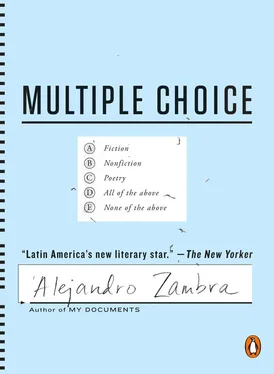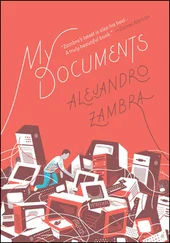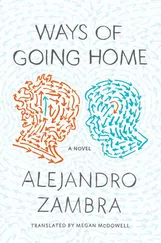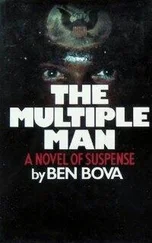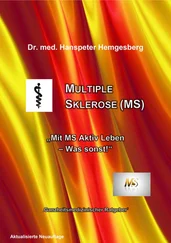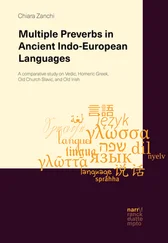The next thing I remember is that we woke up sprawled in the living room, not just the bride and me but a ton of other people, some of whom I’d never even met, though I don’t know if they were crashing the party or were distant cousins of the bride, who had — I discovered then — an astonishing number of distant cousins. It was maybe ten in the morning. We were all having trouble stringing words together, but I wanted to try out the ultramodern coffeemaker my sister had given us, so I brewed several liters of coffee and little by little we shook off our sleep. I went to the big bathroom — the small one was covered in vomit — and I saw my friend Maite sleeping in the tub, lolling in an unlikely position, though she looked pretty comfortable, her right cheek pressed against the ceramic as if it were an enviable feather pillow. I woke her up and offered her a cup of coffee, but she opted for a beer instead to keep the hangover at bay.
Later, at around one in the afternoon, Farra switched on a camera he’d brought with him to film the party but had only just remembered. I was flopped in a corner of the room, drinking my zillionth coffee while the bride dozed against my chest. “Tell me, how does it feel?” Farra questioned me, in the tone of an overenthusiastic small-town reporter.
“To be married?” I asked him.
“No — to be married in a country where you can’t get divorced.” I told him not to be an ass, but he kept going. He told me his interest was genuine. I didn’t want to look at him, but he went right on filming me. “Why all the celebration,” he insisted, not letting up, “when you’re just going to separate in a couple of years? You’ll call me yourself. You’ll come see me in my office, begging me to process your annulment.”
“No,” I answered, uncomfortable.
Then the bride sat up and rubbed her immense green eyes, caressed my hair, smiled at Farra, and said lightly, as if she’d spent some time thinking about the matter, that as long as divorce wasn’t legal in Chile, we wouldn’t separate. And then I added, looking defiantly into the camera: “We will stay married in protest, even if we hate each other.” She hugged me, we kissed, and she said that we wanted to go down in the nation’s history as the first Chilean couple to get divorced. “It’s a stupendous law. We recommend that everyone get divorced now,” I said, playing along, and she, looking at the camera too, now with unanimous laughter in the background, seconded the opinion: “Yes, it’s an absolutely commendable law.”
“Chile is one of the few countries in the world where divorce isn’t legal,” someone said.
“It’s the only one,” someone else clarified.
“No, there are still a few left,” said another.
“In Chile,” Farra continued, “the divorce law will never pass. They’ve been arguing over it for years and nothing’s happened, especially with the whole rotten Catholic lobby against it. They even said they’d excommunicate any representatives on the right who voted for it. So the world will just go right on laughing at us.” Then someone said that the divorce law was not the most urgent thing to be fixed in the country, and then that sluggish conversation turned into a collective debate. As if we were filling up another drum, this time with our complaints or our wishes, almost all of us had something to contribute: the urgent thing is for Pinochet to go to jail, to go to trial, to go to hell, the urgent thing is to find the bodies of the disappeared, the urgent thing is education. The really urgent thing, said one guy, is to teach Mapudungún in schools, and someone asked him if he was, by chance, Mapuche (“more or less,” he replied). The urgent thing is health care, said someone else, and then came another, then others: the urgent thing is to fight capitalism, the urgent thing is for Colo-Colo to win the Copa Libertadores again, the urgent thing is to fuck Opus Dei up, the urgent thing is to kick Iván Moreira’s ass. The urgent thing is the war on drugs, added one of the bride’s distant cousins, getting everyone’s attention, but right away he clarified that it was a joke.
“We live in the country of waiting,” the poet said then. There were several poets at the party, but he was the only one who deserved the title, because he tended to talk like a poet. More precisely, he spoke in the unmistakable tone of a drunk poet, of a drunk Chilean poet, of a young, drunk, Chilean poet: “We live in the country of waiting; we live in wait for something. Chile is one giant waiting room, and we will all die waiting for our number to be called.”
“What number?” someone asked.
“The number they give you in waiting rooms, dumb-ass,” someone said. Then there was complete silence, and I took the opportunity to close my eyes, but I opened them again right away because everything was spinning.
“Goddamn, you talk nice,” Maite told the poet then. “I could really be into you. The only problem is how small your dick is.”
“And how do you know that?” asked the poet, and she confessed she had spent hours hiding in the bathtub, looking at the penises of the men who went to piss. Then the poet said, with a slight but convincing scientific intonation, that the size of the penis when pissing was not representative of the penis in an erect state, and there was a general murmur of approval.
“Let’s see, then — show it to me erect,” said Maite, all in.
“I can’t,” said the poet. “I’m too drunk to get it up. You can try going down on me if you want, but I’m sure I won’t get hard.” They went to the bathroom or to the poet’s house, I don’t remember.
“I’m sorry,” Farra said to us later, I suppose regretfully, the camera now turned off. “I don’t want you two to separate. But if one day you do, you know you can count on me, both of you: I’ll handle the separation for free.” I don’t know if we smiled at him — now I think we did, but it must have been a bitter smile. The guests left one by one, and it was night by the time we were alone. We collapsed into bed and slept for about twelve hours straight, our arms around each other. We always slept in an embrace. We loved each other, of course we did. We loved each other.
Two years later, just as Farra had foretold, we went to see him in his office. The divorce law was still stalled in Congress; it was said that its approval was imminent, but Farra told us that in no way was it worth waiting for. He even thought that afterward, once it passed, divorce would be more expensive than annulment. He explained the process to us. We’d already known that the judgment of nullity was ridiculous, but when we learned the details, it also struck us as immoral. We had to declare that neither she nor I had lived at the addresses that appeared on our marriage contract, and we had to find some witnesses who would attest to it.
“How idiotic,” I told the bride that afternoon, at a café on Agustinas. “How pathetic, how shameful to be a judge who listens to someone lie and pretends not to know they’re lying.”
“Chile is idiotic,” she said, and I think that was the last time the two of us were in total agreement on something. We didn’t want to get an annulment, but it was fitting, in some sense. Now that I think about it, the best way to summarize our story together would be that I gradually annulled her and she me, until finally we were both entirely annulled.
__________
In May 2004, Chile became the penultimate country in the world to legalize divorce, but the bride and I had already gotten our annulment. Maite and the poet, who were a couple by then, were going to be our witnesses, but at the last minute the poet backed out and I had to ask the favor of the woman whom, a few years later, I married. I’m not going to tell that story here; it’s enough to say that with her, things were completely different. With her, things worked out: she and I were able, finally, to divorce.
Читать дальше
